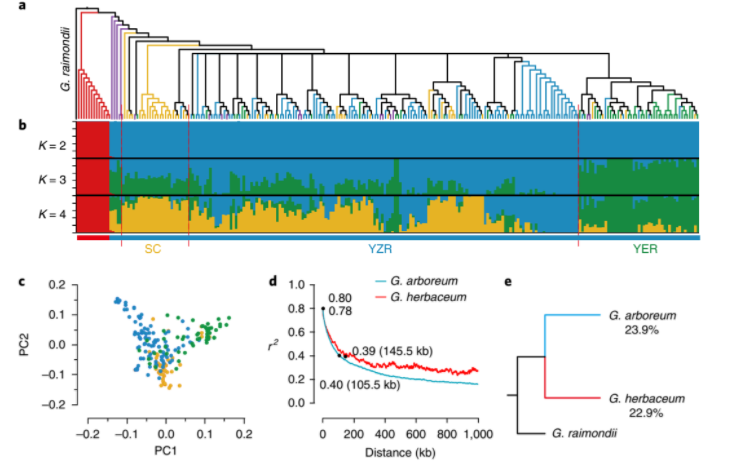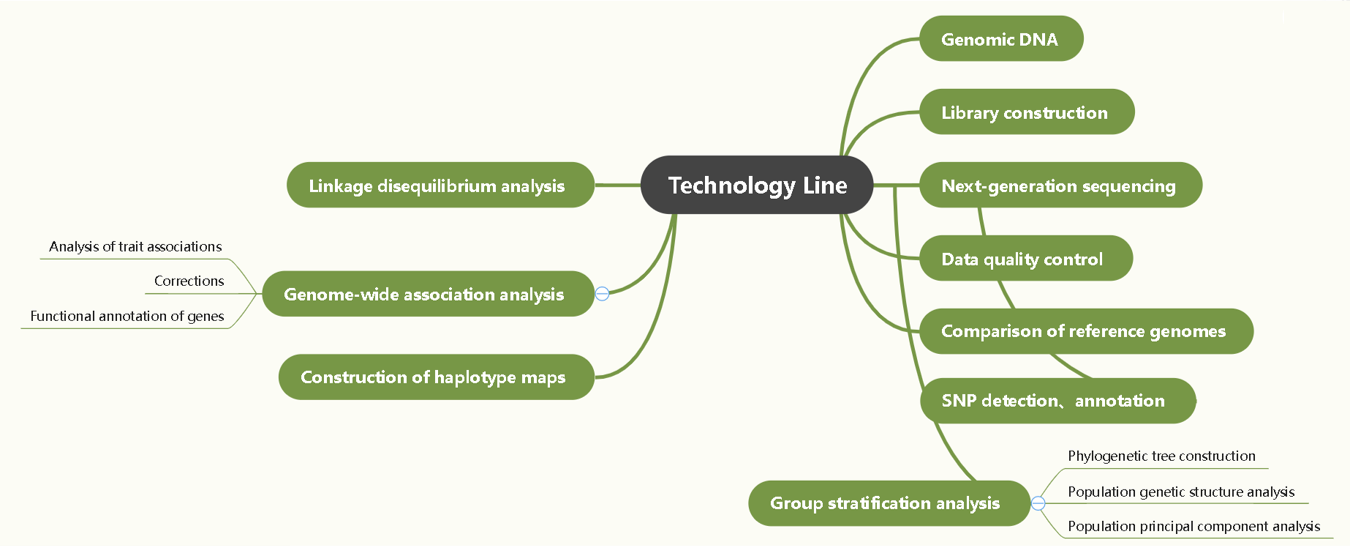Classic case:
Title: Resequencing of 243 diploid cotton accessions based on an updated a genome identifies the genetic basis of key agronomic traits.
Journal: Nature Genetics (IF = 38.330)
Background: Cotton is one of the world's most important cash crops and an important resource for the study of plant polyploidy. the ancestors of Gossypium arboreum and Gossypium herbaceum provided the A subgenome for modern cultivated allotetraploid cotton. g. arboreum may have been domesticated in Madagascar or the Indus basin and subsequently spread to Africa and other parts of Asia. It was first introduced to China about 1000 years ago as an ornamental plant. Although cotton breeders have constructed various RFLP5 and SSR-based genetic maps, key genes associated with excellent agronomic and economic traits of G. arboreum and G. herbaceum have not been identified.
Key findings:
The ancestors of Gossypium arboreum and Gossypium herbaceum provided the A subgenome for the modern cultivated allotetraploid cotton. Here, we upgraded the G. arboreum genome assembly by integrating different technologies. We resequenced 243 G. arboreum and G. herbaceum accessions to generate a map of genome variations and found that they are equally diverged from Gossypium raimondii. Independent analysis suggested that Chinese G. arboreum originated in South China and was subsequently introduced to the Yangtze and Yellow River regions. Most accessions with domestication-related traits experienced geographic isolation. Genome-wide association study (GWAS) identified 98 significant peak associations for 11 agronomically important traits in G. arboreum. A nonsynonymous substitution (cysteine-to-arginine substitution) of GaKASIII seems to confer substantial fatty acid composition (C16:0 and C16:1) changes in cotton seeds. Resistance to fusarium wilt disease is associated with activation of GaGSTF9 expression. Our work represents a major step toward understanding the evolution of the A genome of cotton.

Publication
Du XM, Huang G, Li FG et al. Resequencing of 243 diploid cotton accessions based on an updated a genome identifies the genetic basis of key agronomic traits. Nature Genetics, 2018.
